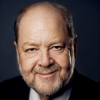James Rothman

James Rothman
James Edward Rothmanis an American biochemist. He is the Fergus F. Wallace Professor of Biomedical Sciences at Yale University, the Chairman of the Department of Cell Biology at Yale School of Medicine, and the Director of the Nanobiology Institute at the Yale West Campus. Rothman is also concurrently serving as adjunct professor of physiology and cellular biophysics at Columbia University. and a research professor at the Institute of Neurology, University College London. Rothman was awarded the 2013 Nobel Prize in...
NationalityAmerican
ProfessionScientist
Date of Birth3 November 1950
CountryUnited States of America
One of the major lessons in all of biochemistry, cell biology and molecular medicine is that when proteins operate at the sub cellular level, they behave in a certain way as if they're mechanical machinery.
I became aware of the very complex internal organization in a cell from the basic science classes, and it made me think about how all that could work. It seemed like a great mystery, especially how organelles in the cell can be arranged in three dimensions, and how thousands of proteins could find their way to the right location in the cells.
I might have been just as happy to have been a practicing primary-care doctor. But as a medical student, I had interacted with patients suffering from neurodegeneration or acute clinical schizophrenia. It left an indelible mark on my memory.
In the earlier years when I started this project at Stanford University, everyone told me it was nuts to go and try to reproduce the mysterious complexities that occur in a whole cell.
As physics students, we are taught that physicists are smart, that chemists are moderately acceptable, and that biologists are certainly not very intelligent. So I wasn't inclined to take a biology course. But my father insisted, and maybe what he had in mind was that, if there were no jobs in physics, I would end up being a doctor.
The truth is that anyone, almost anyone, who receives the Nobel Prize has some indirect knowledge of one sort or another that they may be a candidate.
When I was a college student at Yale, I was studying physics and mathematics and was absolutely intent on becoming a theoretical physicist.
I started taking a basic biology course, and I really loved it. I started asking research questions incessantly. I was drawn very quickly to biology.
I had five years of failure, really, before I had the first initial sign of success.